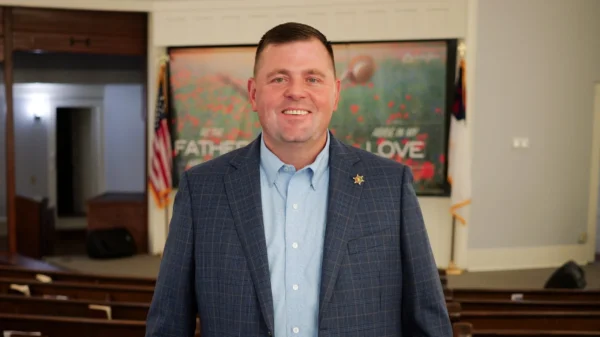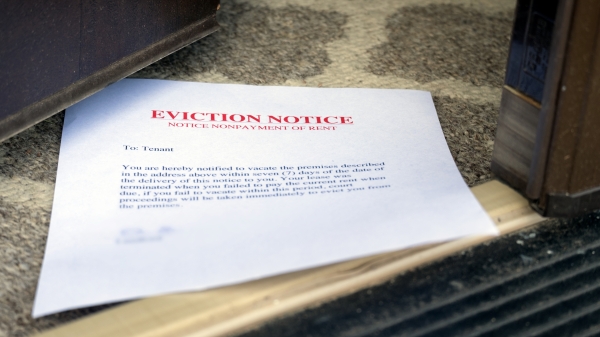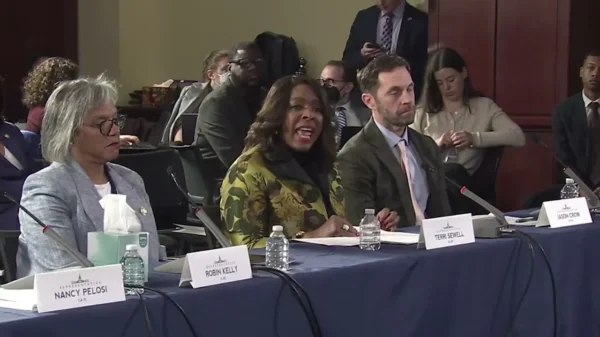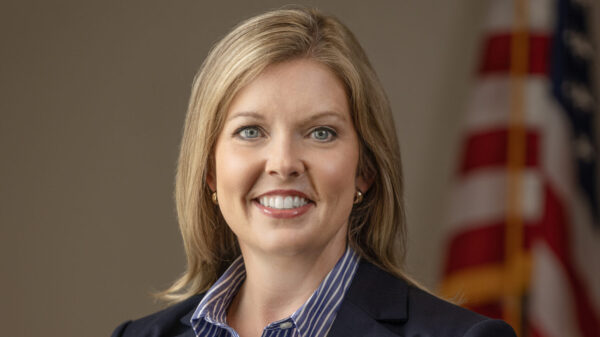Several freshmen entered the Alabama Legislature this year after last year’s election. From navigating the legislative process to building relationships inside and across party lines, these freshmen lawmakers approached their roles in different ways but often with a commitment to listening and learning.
Rep. Mike Kirkland, R-Scottsboro, described himself as a “Conservative Outsider” during the campaign. His first political elected office was as a representative for House District 23. Outside of a couple of tours of the Statehouse, his first time on the floor of the House was as a representative. Mindful of his greenness, Kirkland took it slow in his first session and focused on learning.
“I’m a first-termer. I didn’t know a whole lot, and going into that first session and the subsequent sessions, I felt like the best thing I could do was listen and pay attention and read my notes,” Kirkland said. “I think listening to the more experienced members definitely helps a freshman. I think that was the right approach.”
Kirkland felt a strong obligation to know the ins and outs of bills that came before his committees. During sessions on the floor, Kirkland spent a good amount of time on his laptop reading them before consulting other members, progressively moving from fellow freshmen to experienced members.
“I cannot think of a single person, an experienced person that had been there a while, a chairman or otherwise, that wasn’t available and willing to help or answer a question.”
Rep. Kerry “Bubba” Underwood, R-Tuscumbia, came into the session confident from six years as mayor of Tuscumbia and two years of informally attending the legislative sessions. He sponsored five bills and achieved the rare success of getting each passed. But Underwood’s main focus was in committee work. Assigned to five standing committees and three other committees, Underwood used his analytical experience as a CPA to dive into bills.
“I’m too analytical, sometimes it really is not too good,” Underwood said. “The thing that kicks against that analytical nature is the speed at which the legislative process works. You know, analytics take time. And the way this is set up is, you know, we have just 30 days that things are done, outside committee work, and so it has to move quickly.”
The size and process of committee meetings felt familiar to Underwood, who compared them to city council meetings. As mayor, he knew how to work with five or six council members, but a crowd of 105 brings circles within circles of people. Time limits the opportunity to agree.
“As a legislator, am I going to be graded by how many bills are passed? Or am I going to be graded by the types of bills that I either passed or voted against?” Underwood said. “It isn’t just a football game. It’s more than that. It’s better than that.”
Anticipating the rush of the next session, Underwood aims to connect with legislators during the off-season and get his legislation prepared well ahead of time.
Sen. Merika Coleman, D-Birmingham, is not exactly new to the Statehouse. She has been the representative for District 57 since 2002. But in 2022, she ran and was elected to the Senate. Switching chambers brought a degree of uncertainty over her status. Was she a freshman?
“For the first couple of weeks for me in the Senate, I was a little, you know, off-kilter — trying to figure out where’s my role, you know? This is different,” Coleman said.
At the beginning of the session, Coleman was nominated to chair the Black Caucus. She did not expect a leadership position like that, but when there are eight members of your party in the Senate, experience is enough.
“When I made the statement, I said, ‘Hey, I’m a freshman,’ and I said it sometimes in committee as well. They’re like, ‘No, you’re not a freshman.’ You’ve been around here for 20-plus years. You know the ropes. You have the relationships.’ And so, you know, I’ve been blessed that right away, folks have seen me as a, you know, equal colleague and have supported me accordingly,” Coleman said.
Settling into the Senate involved learning the less formal, quieter legislative procedure involving more behind-the-scenes negotiation. Coleman found consensus to be much more achievable in the Senate, partly because many Republican senators had to negotiate as the minority party before 2010.
“You do still have some people serving in the Senate, or very active in politics, that remember what it was like being in the minority party. You do not have that in the house. In the house, you have folks that rose up the ranks from 2010 on and never know what it feels like to be in the minority. ” Coleman said. “My Republican colleagues and I don’t hate each other; we differ in ideology.”
Rep. Mark Shirey, R-Mobile, entered the Legislature as an experienced eye doctor with interests in education, mental health and healthcare. The freshman lawmaker revealed that he was a little surprised at the bipartisanship during his first legislative session as a representative.
“Well, I didn’t expect to pass as many bills as we did,” Shirey said. “We had across the aisle support on a lot of bills, we had a few stumbling blocks, but they weren’t that many. And a lot of our bills were passed almost unanimously.
Shirey did not sponsor legislation during the session and said he just wanted to “wanted to sit back and learn and just soak up as much knowledge and get as much experience,” in preparation for the next session. With this experience under his belt, Shirey stated that he would be open to sponsoring the state health officer bill, which failed in the Senate.
“I would sponsor the state health officer bill,” Shirey said. “I would carry that in the house if [Sen. Sam Givhan] is not gonna bring it back up.”
Rep. Frances Holk-Jones, R-Bay Minette, said she learned over a “million things” during her first session. Jones said the experience was very enlightening given her background in the insurance industry and jokingly discussed the first few months traveling to the Statehouse.
“You know, it was hugely rewarding and educational,” Jones said. “I’ve got 44 years as a professional in the insurance industry. And so to go to a whole new world, everything was new. I’ve told people after a month or so I no longer had to Mapquest from my apartment to the state house so it was huge progress.”
Jones also said that being a part of the legislature is totally different than viewing it as an outsider and the hospitality of everyone was very surprising regardless of party affiliation.
“And it wasn’t nearly as controversial and as an outsider thought it was going to be,” Jones said. “So everybody was so friendly, so inviting, across the lines worked together and really did work things out.”
Despite being an outsider and freshman, Jones was able to sponsor and pass her very first bill related to social workers. Jones is passionate about mental health and in the next session looks forward to sponsoring legislation and working with her colleagues on problems surrounding that issue.
“I’m still a freshman but I’m still learning so I do not have any particular bills but mental health is my passion. And I have been put on some new committees that are going to work on mental health. So I’m excited about that.”
Rep. Ontario Tillman, D-Bessemer, said he really enjoyed the process as a freshman legislator including learning how to write and file bills, becoming acquainted with all of the other lawmakers and getting acclimated to the position overall. Despite being a newcomer the Birmingham-based attorney served on the House Judiciary Committee.
“It was a learning process, you know, understanding pretty much the lay of the land,” Tillman said. “Honestly, it was a great experience for me… especially with Judy [House Judiciary] because that is a true working committee where you have to read and know the bills.”
Tillman attempted to pass a bill focused on the age related to youthful offender status but the legislation died in the Senate Judiciary Committee. Tillman said he looks at that failed attempt as a learning experience. He looks forward to honing his skills in the “off-season” and coming back next season to get legislation passed.
“I can’t wait [for next session] I look at like it’s the off-season I’m trying to get ready, I’m excited about the start of next session already. Preparing to start drafting different legislation that I want to pre-file, so absolutely I’m looking forward to the next session.”
Rep. Phillip Ensler, D-Montgomery, was the only Democrat entering a formerly Republican seat in this session, but he was pleasantly surprised at the lack of combativeness compared to other state legislatures that have been in the news.
“When you look at what has happened in other states where Republicans had a supermajority, Tennessee being one of those examples, there was a lot more tension between the parties and that leadership,” Ensler said. “We did not have that in Alabama this session and I give credit to the Speaker and certain other key leadership members on that for being open to hearing us out and to not taking an unnecessarily aggressive or combatant approach.”
Of course, it could still be tough being in the minority and knowing that any bills drafter or supported have a tougher route to passage.
“The tough part is the votes may just not be there for a Democratic bill,” Ensler said. “You’re not sure whether they’re even going to make it through a committee in the first place.”
Ensler said his biggest takeaway is to spend the “offseason” building personal relationships with other lawmakers to help the process move along.
“During session some things happen at such a fast pace,” Ensler said. “I look forward to spending more one-on-one and small group time talking through where we can find common ground in the coming months.”
Troy Stubbs, R-Wetumpka, and Leigh Hulsey, R-Hoover, both made the move over to the Legislature from local government bodies. Both of them said the big takeaway is just how much longer everything takes when you go from a council or commission of five to a body of 105.
“Compared to my time as chairman of the (Elmore) county commission, it certainly takes a whole lot longer to get something done in the Legislature than at the local level as a county commissioner, and that’s good because these decisions obviously affect a lot of people,” Stubbs said.
“Here we are not only drafting (a law) and making sure it is good to go, but now having to file that bill, work to get it into committee and then onto the floor for a vote,” Hulsey said. “Those things don’t just happen; there’s a lot of hard work. You have to be diligent and intentional.”
Hulsey had the honor of getting one of her own pieces of legislation, the Case Noah Act, all the way through the Legislature and onto Gov. Kay Ivey’s desk. The law would require law enforcement officers to undergo training to respond to people with “invisible disabilities.”















































